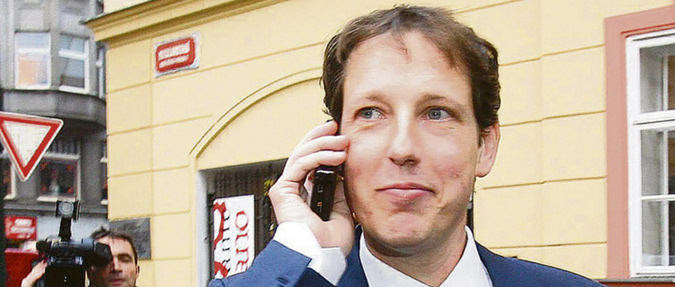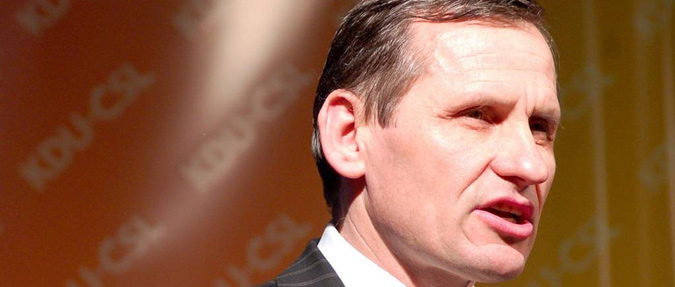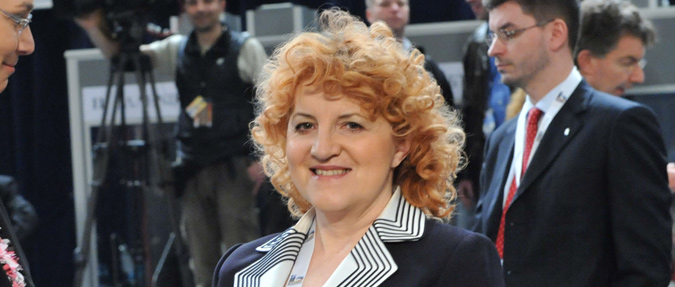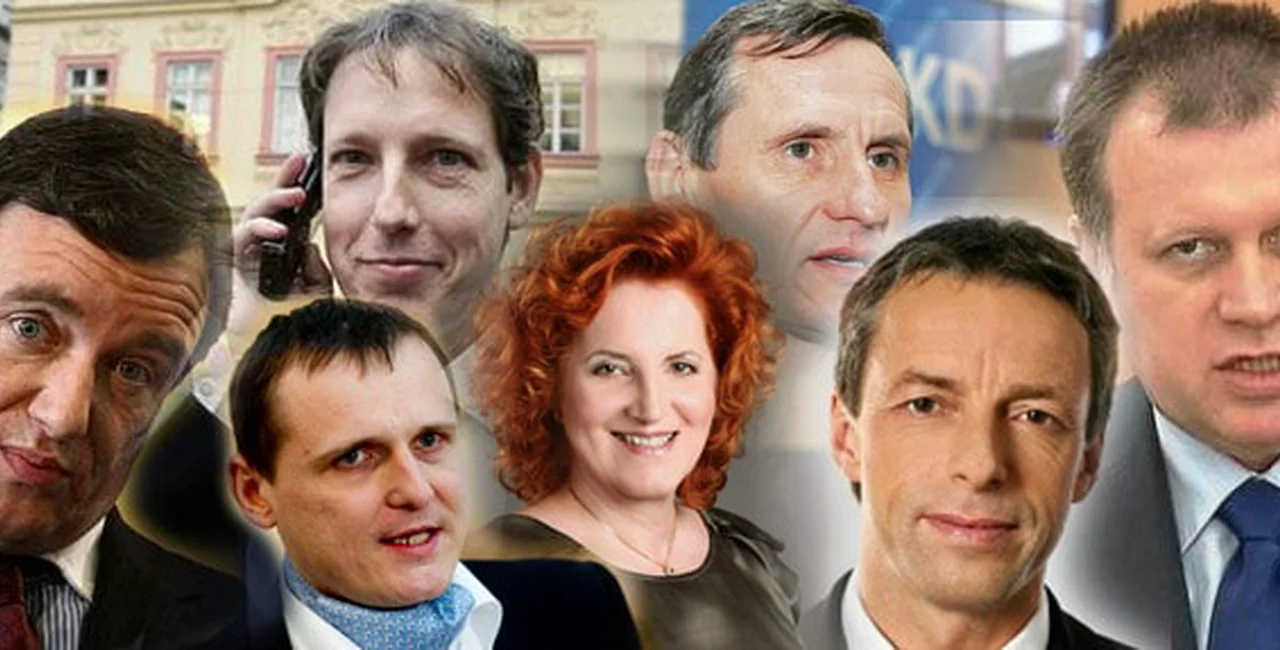The word corruption gets used a lot when discussing Czech politics. Personally, I’ve yet to meet a person who speaks highly of the political class here – and no wonder when we look back over the recent cases. But perhaps these cases show a growing political will to actively pursue and prosecute the lawmakers who think they are above the law.
This year there have been three high profile arrests – Rath, Parkanová and Šiška. Are we seeing more political will to tackle corruption? Or will history repeat itself?
The Clown Prince
In 2005, the Czech National Football Team still commanded some respect; the National Ice Hockey Team won gold at the international championship, and a young Stanislav Gross was disposed as prime minister of the Czech Republic.

Stanislav Gross
Gross became PM in August 2004. At 34, he was the youngest Czech prime minister in history. But he’s remembered more for the irregularities of his finances. In January 2005, Mladá Fronta Dnes queried how he could afford a 4.2 million CZK flat.
Gross said that he borrowed the money from his uncle, who was considered an unlikely source given that he’d been retired since 1974. Later, former journalist and businessman Rostislav Rod came forward and said that he had loaned the money to Gross’ uncle.
The police investigated the affair and concluded that Gross had not broken the law. But Gross, who was once dubbed the ‘crown prince’, was now political poison.
Scandal Magnet
Jiří Čunek has managed to generate a lot of press in his career. A former secretary accused him of sexual harassment and was awarded 80,000 CZK in damages this year. In 2006, while he was mayor Vsetín, he forced 36 Roma families from the municipal flats where they lived. Czech TV reported that in the 1990s Čunek received social benefits when he had 3.5 million on his bank account.

Jiří Čunek
But it was the alleged 499,000 CZK bribe he received in 2002 from H & B Real – a real estate firm – which brought the most scrutiny. According to police, Čunek deposited the above amount in his account; at the same time, H & B Real withdrew 497,000 CZK. Čunek said the money was his life savings, which until then he’d had in cash and had saved from the age eight. The company said the money was to replenish its cash.
Charges were brought against him in 2007, when he was deputy prime minister and minister for regional development. Arif Salichov, who replaced a public prosecutor, dropped the charges because of what he deemed a lack of evidence.
However, the investigation has never been regarded as clear-cut. Renata Vesecká, the National Attorney General and Salichov’s superior, was dismissed from her post for purported interference in the case.
A Very Public Affair
The general feeling then, as now, was that the whole political class was awash in kickbacks and fueled by graft. Enter Public Affairs (Veřejné věci or VV) – fronted by former journalist and novelist Radek John.
Formed in 2001, VV came to prominence in 2010, styling itself as the new, corruption-free kids on the parliamentary block. Appearances soon changed. Party boss Vít Bárta was accused of bribing two of the party’s MPs, Kristýna Kočí and Jaroslav Škárka, for loyalty. Bárta received an 18-month suspended sentence, which he appealed back in June of this year. He maintains that he had only given them interest-free loans.
The affair split the party, with eight VV MPs and two of their ministers leaving to form LIDEM. Bárta, along with John and a third VV minister, Josef Dobeš, were forced to step down from their positions, though all three remain in parliament.
Just Friends
Bárta had a minor role in another affair. In 2009, ABL, the security firm he owned at the time, allegedly obtained wire taps from the Czech intelligence agency, BIS. The taps were of former Prague mayor Pavel Bém (ODS) and business man and lobbyist Roman Janoušek in 2007.
BIS director Jiří Lang said in an interview with Respekt that the bugging took place because Janoušek was interested in the privatization of Ruzyně (now Václav Havel) airport. One conversation reveals Bém and Janoušek discussing who should be the head of the largest public insurer, VZP. In another conversation published on iDnes, the pair appear to speak in code, referring to ‘a dead horse’ and a ‘Maori queen’. There is also mention of an envelope, though the nature of this is not elaborated, and Bém said in the conversation that he didn’t understand Janoušek’s reference. Bém offered no explanation of the conversation to the press at the time. Concerning his relationship with Janoušek, he said they were close friends.
As suspicious as the recordings are, their existence raises a number of questions. How did a private firm obtain them from the state’s security service? Why did it take so long for the recordings to come out? And why weren’t they given to the police?
Oh yes, as for Bárta, he had his own special relationship with Janoušek. The lobbyist had loaned MP money for his political campaign. No mention is made if it was an interest-free loan.
A Fine Vintage
While it could be debated that Bém got away scot-free, some more recent cases suggest the situation may be changing.
On the evening of 14th May, David Rath (ČSSD), the then-governor of Cental Bohemia, was arrested with a 7 million CZK bribe in a shoe box. The payment was to secure the reconstruction deal for Buštehard Castle. As is now well-known, he claimed that he thought the box contained wine. When 30 million CZK was later found under the floor, you have to wonder if he claimed it was his wine cellar.
On 5th June, an overwhelming majority of members of the Czech lower house agreed to remove Rath’s immunity. (Czech politicians are immune from criminal prosecution unless the lower house decides otherwise.) Perhaps the decision shows a multi-partisan stance against corruption. More likely, the MPs had no other choice. Rath remains in prison but continues to be a member of parliament.
Jet Setter
Almost exactly two months after Rath’s arrest, Vlasta Parkanová (TOP 09) was stripped of her immunity and forced to resign from her position as deputy speaker, but retained her parliamentary seat.

Vlasta Parkanová
Police intended to charge her with breach of trust and abuse of power relating to the purchase of four CASA C-295 military transport planes from her time as Minister of Defense. There was no open tender for the deal. Apparently, the state paid an additional 658 million CZK above market price for the planes. The four planes were subsequently grounded due to technical failures.
The current Minister of Finance, Miroslav Kalousek (TOP 09), apparently called the chief investigator and “put the case on ice”.
And Once More
This brings us to the latest case. On the 1st October 2012, Vladimír Šiška, the assistant to the Minister of Labor and Social Affairs, was charged with accepting bribes.
Following the arrest, Jaromír Drábek (TOP 09), Šiška’s boss, stepped down, thus giving the public one more reason to mistrust politicians.
Looking at this year’s cases, two conclusions can be drawn. One – the authorities are manning up and going after those who abuse their position. Or – and this is sadly how it seems from recent history – it is part of the ongoing politics of Czech politics. Only the authorities will decide how we ultimately view these cases.
What do you think of the Czech political scene?
Related articles












 Reading time: 6 minutes
Reading time: 6 minutes 

























